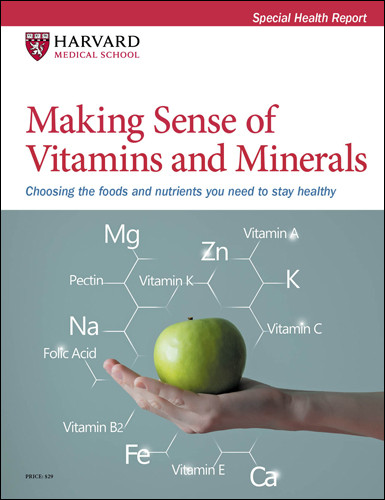Should I take a multivitamin or other nutrition supplement?
On call
 Q.
I try to follow a Mediterranean-style diet. As an older man, should I also consider taking a daily multivitamin? Might I benefit from other supplements?
Q.
I try to follow a Mediterranean-style diet. As an older man, should I also consider taking a daily multivitamin? Might I benefit from other supplements?
A. To help answer your question, I will first describe how I arrived at my own supplement program. I have taken a standard over-the-counter daily multivitamin for many years. My original reason was simple. Even though I was confident my diet covered the necessary nutrients, I liked having this inexpensive insurance. Although that was my personal choice, I only recommended a daily multivitamin for patients who might not ingest at least the recommended micronutrients daily. However, the results of two recent clinical trials changed my thinking.
Participants in both studies, average age 72, were assigned to take either a standard multivitamin or a placebo. Their cognition and memory were tested at the study's start and again three years later. In one study, cognitive fitness scores were higher in those taking the multivitamin compared with those taking a placebo. In the other study, multivitamin takers scored higher on memory tests.
I now take my daily multivitamin even more faithfully and recommend it to adults middle-aged and older. I also take a vitamin D supplement with 1,000 international units (IU) each day. The recommended dosage for people ages 70 and older is 800 IU daily. Check the label of your multivitamin to see how much vitamin D it contains, as the dose can vary. By taking both the multivitamin and the vitamin D supplement, I am well within the safe range of less than 4,000 IU daily. Sufficient vitamin D intake prevents vitamin D deficiency, thereby helping to maintain my bone strength, with possible other health benefits, such as a better functioning immune system and perhaps a lower cancer risk.
My third daily supplement is vitamin B12. I have a long history of acid reflux and need to take a strong stomach acid inhibitor every day to control it. My lower-than-normal stomach acid level can prevent the absorption of vitamin B12 from food. However, with the supplement, I can safely get enough vitamin B12 and avoid a deficiency. You may have personal reasons for considering other supplements. For example, men often don't get enough fiber in their diet. Other than the discomfort of intestinal gas, fiber supplements are safe and can improve bowel irregularity.
Always choose supplements that bear the U.S. Pharmacopeia Dietary Supplement Verification Program (USP-DSVP) mark, which indicates that the manufacturer has complied with certain standards. Supplements vetted under the USP-DSVP should contain the ingredients noted on the label in the amounts and strengths stated.
Image: © Connect Images/Getty Images
About the Author

Howard E. LeWine, MD, Chief Medical Editor, Harvard Health Publishing; Editorial Advisory Board Member, Harvard Health Publishing
Disclaimer:
As a service to our readers, Harvard Health Publishing provides access to our library of archived content. Please note the date of last review or update on all articles.
No content on this site, regardless of date, should ever be used as a substitute for direct medical advice from your doctor or other qualified clinician.
















